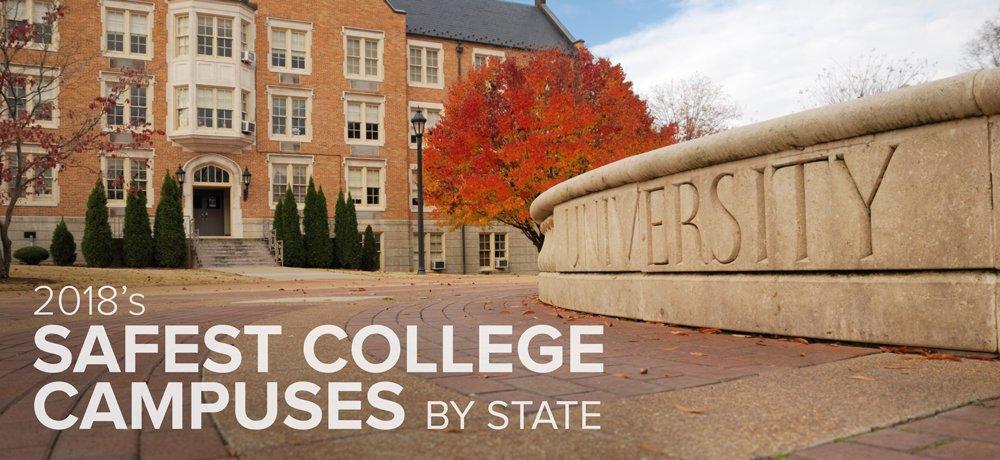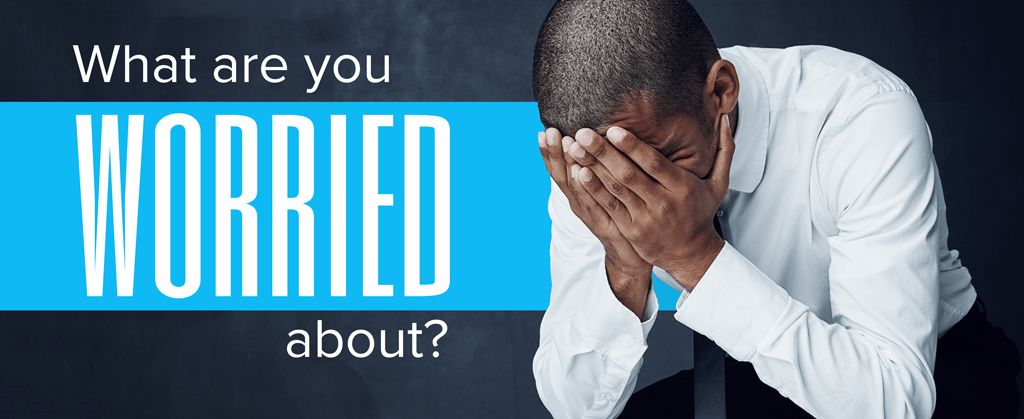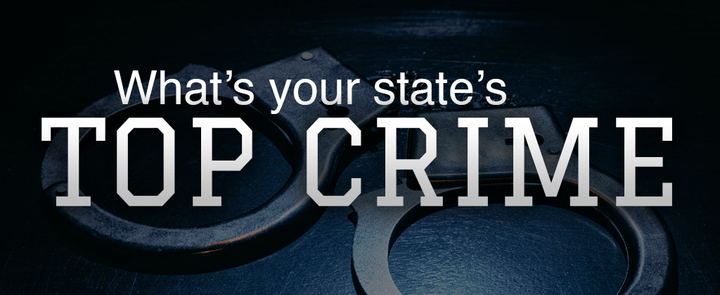In a perfect world, academics and career goals could be your top priorities in choosing a university. However, safety is fast becoming a determining factor for future students and their parents and guardians.
Luckily, your resources are broader than breaking news reports on school scandals. Below, we’ve tallied the top 25 safest schools in the United States and explained what makes them smart choices for student safety.
Whether you’re the parent of a high schooler or a student who prioritizes safety, have a look at our list below—and if you haven’t already, consider applying to some of the safest colleges in the U.S.
Factors Considered
It takes a lot of cross-referencing and deep digging to identify and rank the nation’s safest schools. We got our results by checking (and checking, and checking again) the following crime reports:
- Campus Safety and Security Survey. Every year, the U.S. Department of Education requires institutions of higher learning to report their campus’ crime statistics. (Want to run the numbers yourself? The Campus Safety and Security site makes it easy for parents, students, and researchers alike to download and decipher the data.)
- FBI Uniform Crime Report (UCR). Along with looking at the colleges’ self-reported data, we looked at the FBI’s yearly crime reports for the cities that host these campuses.
Then, we used the following factors to decide which schools to include:
Campus size. We only looked at universities that had at least 1,000 enrolled students.
Type of campus. We included universities and community colleges that offered two– to four–year degrees. We also included private, public, non-profit, and for-profit campuses.
Campus location. Several campuses across the country have exceptionally safe satellite or secondary campuses, but we chose to consider only universities’ main campuses.
Types of crime. We considered incidences of property crime, violent crime, and violence against women, then weighed the crimes by severity and divided the school’s crime by enrollment to calculate total per capita crime.
Data availability. Unfortunately, some cities and colleges didn’t have sufficient data from our two main sources to include them in our ranking.

-
Oregon State University (Corvallis, OR)
Per our data, the safest college in the nation is located just outside of Portland and only an hour away from the gorgeous Oregon coast. If you attend OSU, you’ll have opportunities to learn both on campus and off (for instance, in summer 2018, a group of staff members and students will travel to Puerto Rico to offer aid alongside a local university). No matter where you study, though, you can rest assured knowing the university is doing everything it can to keep you safe.
The Campus Safety Information page has resources for everyone from bikers to those worried about identity theft, and the Department of Public Safety works closely with groups like the Women’s Center and Counseling & Psychological Services to provide maximum security.
-
University of Phoenix-Arizona (Tempe, AZ)
The way we do college is changing—fast. Colleges like the University of Phoenix offer online degrees to give more students than ever access to affordable, off-site education, and the University of Phoenix’s physical campus is safer than most others in the nation. The university provides a comprehensive list of staff members who can be contacted for immediate assistance. Plus, unlike many other universities, the University of Phoenix-Arizona goes the extra mile by including a section on gender discrimination, assault, and harassment on its list of campus safety priorities and resources.
-
Rutgers University-New Brunswick (New Brunswick, NJ)
Rutgers’ New Brunswick campus is the oldest of five. With an enrollment just under 66,000, the university has a lot of work to do to keep each student safe—and it succeeds admirably. Thanks to the Rutgers University Police Department, help is always nearby, whether through officers on foot, bike, or even horseback. It’s easy to contact the department to request a late-night escort/walking buddy or a ride home via the shuttle.
-
University of Virginia (Charlottesville, VA)
The University of Virginia was founded by Thomas Jefferson, governed by both James Madison and James Monroe, and became the first collegiate UNESCO World Heritage Site. As if these accomplishments weren’t enough, it’s also one of the top five safest campuses in the nation, according to our data. UVA has a large full-time police department, thorough community safety trainings, crime intervention training, student safety ambassadors and walking escorts, easy and safe reporting systems, and after-hours Safe Ride buses.
-
University of Oklahoma (Norman, OK)
With a high acceptance rate and a campus of over 30,000 students, the University of Oklahoma is a fantastic choice for students focused on both academics and a meaningful social life. It’s also the perfect selection for students who care about safety. Along with emergency preparedness tools and resources on campus and weather safety, the university’s safety page includes comprehensive information on the Women’s Outreach Center and the Institutional Equity Office, both of which work to ensure everyone’s rights are upheld on campus.
-
University of South Carolina (Columbia, SC)
The University of South Carolina is more than two centuries old, but its safety policies are anything but outdated. USC’s safety web page lists resources for students to explore and stay informed, such as victim resources and the RAVE emergency app. The site also lists a daily crime log, crime bulletins, crime mapping, and other statistics that help students take their safety into their own hands.
-
Johnson County Community College (Overland Park, KS)
JCCC is Kansas’s largest community college, and with nearly 20,000 students, it provides a robust social life without packing classes full to bursting. The KOPS-WATCH program makes it easy for students to report a crime or express concern for a fellow student who may need intervention, while the KNOW program focuses specifically on giving community members the resources to identify, stop, and report all forms of relationship violence.
-
Monroe Community College (Rochester, NY)
Looking for a safe, student-friendly two-year campus in New York state? Monroe Community College has two campuses, one in Brighton and one in the heart of Rochester, giving students excellent cultural learning opportunities alongside a first-rate education. The Department of Public Safety provides multiple resources for victims of domestic violence and sexual assault, offers a quick and anonymous way to report tips, and explains downtown safety services that help students stay safe both on and off campus.
-
Norwich University (Northfield, VT)
If you’re planning on attending the United States’ oldest military college, you’re already committed to protecting others’ safety. While you study, Norwich University keeps you and your fellow cadets and civilian students safe with its all-inclusive Department of Public Safety. Visit the site to learn about the campus’s 24-hour patrols, Safe Ride back to campus buses on Friday and Saturday nights, and on-campus shuttle program.
-
University of Iowa (Iowa City, IA)
The University of Iowa is the state’s oldest, and it provides students with 200+ educational programs to choose from. No matter which courses you take, UI works to keep you safe by offering NITE RIDE buses and training students for the student security officer program. The Threat Assessment Team works alongside students to identify individuals who may need crisis intervention. The university’s Sexual Assault Response Team operates on a “Start by Believing” principle that helps survivors immediately access the care and support they need.
-
Boise State University (Boise, ID)
Boise State offers bachelor’s degrees to its undergraduate population of 20,000 students and 100+ master’s degree options for its 2,000 master’s and doctoral students. Boise has a relatively low crime rate, and the university uses common resources and programs like Silent Witness and the RAVE Guardian app to help students actively participate in the campus’s culture of safety.
-
Purdue University (Lafayette, IN)
Purdue University is well known for its robust student athletics programs—it’s a part of the regional Big Ten Conference—and its high-quality academic programs. To keep students safe while they study, work, and socialize, Purdue’s police department teaches safety courses, offers a law enforcement student internship program, and issues Timely Warning notifications online to bring students into the loop about campus crime statistics.
-
University of Montana (Missoula, MT)
The University of Montana calls gorgeous Western Montana home, giving students spectacular views of Montana’s one-of-a-kind landscape. It also boasts several prestigious alumni, including one of the most recent recipients of the Pulitzer Prize. UM’s safety resources include student-run nighttime escorts seven days a week so students never have to walk home alone. Meanwhile, the Campus Safety Committee is comprised of university officials, staff members, and a student representative who work together to ensure the campus is a safe place to live and learn.
-
University of Missouri (Columbia, MO)
The University of Missouri was the first public university established west of the Mississippi, but its safety policies are anything but old or out of date. The Police Department website has a long list of resources, including victim assistance and easy reporting methods for discrimination. Daily incident and crime logs keep students in the know, and campus-wide alerts give students immediate information about active incidents, including bad weather warnings, for maximum security.
-
University of Central Florida (Orlando, FL)
The University of Central Florida gives you more than easy access to DisneyWorld and other local attractions: it also offers affordable in-state tuition, innovative programs, flexible semesters, and top-notch safety. UCF Alerts let students know immediately if an emergency situation arises. The online Emergency Guide gives students all the information they need to protect themselves and others on campus, while the Office of Emergency Management makes it easy to contact national, state, and local safety departments and programs, including campus Victim Services.
-
Colorado State University (Fort Collins, CO)
Colorado State has eight academic colleges, institutes including the Energy Institute and Cooperative Institute for Research in the Atmosphere, and centers like the Public Lands History Center. Along with ensuring students’ academic success, the university also keeps them safe with programs like SafeWalk, which operates from dusk to dawn, seven nights a week. Emergency text alerts keep students in the know, and the university’s safety page includes a special section on incidents of bias with resources for minority students who may need support.
-
Columbus State Community College (Columbus, OH)
Whether you want a head start on your bachelor’s or you’re looking for an affordable, high-quality technical degree program, Columbus State Community College meets your needs. Its open enrollment policy ensures that every student has the chance to succeed in a safe environment: the campus police department provides security escorts, gives safe access to campus buildings, and keeps students informed through RAVE emergency text alerts, which parents of students can sign up for as well.
-
University of North Dakota (Grand Forks, ND)
UND is older than North Dakota itself and has served prospective students in the American West since the 1880s. Along with offering the state’s only medical and law schools, UND has the best campus safety statistics in North Dakota. The Department of Public Safety includes a variety of offices, like the Office of Safety and Office of Emergency Management, and the university-sponsored SafeColleges training resources let students quickly, easily learn about how to stay safe in a university setting.
-
University of Wisconsin–Madison (Madison, WI)
With over 40,000 students, UW–Madison is one of the larger universities on our list, which makes its high safety status even more impressive. Like Colorado State, it uses a free SAFEWalk service that students can request at night. Safety in university housing gets special emphasis on the school’s website; the Inclusive Communities page offers resources for diverse students and includes information on reporting bias-driven incidents.
-
University of Minnesota (Twin Cities, MN)
As a Public Ivy university, or a public university with an educational experience comparable to that of private Ivy League schools, UMN excels in both academics and campus safety alike. For instance, the Gopher Chauffeur program gives students free, easy transportation if they live off campus; alternatively, students can request biking and walking escorts from the campus police department, 24/7. The campus website also includes digital safety resources to help protect students from online harassment and identity theft.
-
Harvard University (Cambridge, MA)
Along with being one of the top universities in the country, Harvard is also one of the safest—not to mention the only Ivy League school to appear in our top 25. The university works to protect students by offering door-to-door drop offs after dark, requiring students to use key cards to access dorms, running an evening van service, and managing an experienced university police department.
-
Rhode Island College (Providence, RI)
RIC has a fantastic teacher/student ratio of 1:20, and its honors program reduces the already-small class size to an average of 15. The college also offers undergraduate research opportunities, especially in departments like physics and nursing. RIC uses the Green Dot prevention program to help students see public safety as a community effort. In particular, the program empowers bystanders to recognize and intervene when sexual harassment and bullying occur on campus.
-
University of Kentucky (Lexington, KY)
If you attend the University of Kentucky, you can look forward to finding a career through one of the campus’s 16 colleges and hundreds of programs. You can also expect a safe campus experience. UK goes above and beyond to safeguard on-campus undergraduate housing. The Office of Crisis Management & Preparedness keeps thorough records that get students up to date on the latest campus emergency procedures and safety protocols.
-
University of Nebraska–Lincoln (Lincoln, NE)
Located in Nebraska’s capital city, UNL is the largest, oldest, and safest campus in the state. The university’s police department site includes helpful emergency preparedness and response information for parents, teachers, students, and staff members alike. The site also helps students new to Nebraska familiarize themselves with state resources.
-
University of Delaware (Newark, DE)
The University of Delaware offers over 100 bachelor’s degrees and nearly 150 master’s programs, plus more than 60 doctoral programs. The comprehensive Office of Campus & Public Safety provides resources on environmental safety, emergency preparedness, and the Student Behavior Consultation Team, which helps students support each other and intervene in crisis situations. The office also recommends a host of crime alert tools and other tech-based resources that keep students in the know.

If your state wasn’t included in the list above, don’t worry—you aren’t out of options! Every state is home to a safe campus that offers a rigorous academic experience, social life, and more.
Alabama: University of South Alabama
Alaska: University of Alaska Anchorage
Arizona: University of Phoenix-Arizona
Arkansas: University of Arkansas at Little Rock
California: University of Southern California
Colorado: Colorado State University-Fort Collins
Connecticut: University of Bridgeport
Delaware: University of Delaware
District of Columbia: George Washington University
Georgia: Georgia State University
Florida: University of Central Florida
Hawaii: University of Hawaii at Manoa
Idaho: Boise State University
Illinois: University of Illinois at Chicago
Indiana: Purdue University
Iowa: University of Iowa
Kansas: Johnson County Community College
Kentucky: University of Kentucky
Louisiana: Louisiana State University and Agricultural & Mechanical College
Maine: Southern Maine Community College
Maryland: Johns Hopkins University
Massachusetts: Harvard University
Michigan: Davenport University
Minnesota: University of Minnesota-Twin Cities
Mississippi: Jackson State University
Missouri: University of Missouri-Columbia
Montana: University of Montana
Nebraska: University of Nebraska-Lincoln
Nevada: Truckee Meadows Community College
New Hampshire: Keene State College
New Jersey: Rutgers University-New Jersey
New Mexico: University of New Mexico-Main Campus
New York: Monroe Community College
North Carolina: Duke University
North Dakota: University of North Dakota
Ohio: Columbus State Community College
Oklahoma: University of Oklahoma-Norman Campus
Oregon: Oregon State University
Pennsylvania: Temple University
Rhode Island: Rhode Island College
South Carolina: University of South Carolina-Columbia
South Dakota: University of Sioux Falls
Tennessee: Columbia State Community College
Texas: University of Texas at Austin
Utah: Salt Lake Community College
Vermont: Norwich University
Virginia: University of Virginia-Main Campus
Washington: University of Washington
West Virginia: University of Charleston
Wisconsin: University of Wisconsin-Madison
Wyoming: Northwest College
About YourLocalSecurity.com
YourLocalSecurity.com aims to provide the security tools and information needed to build a safer home environment. For media inquiries, please contact media@yourlocalsecurity.com.
(Updated April 2018)




